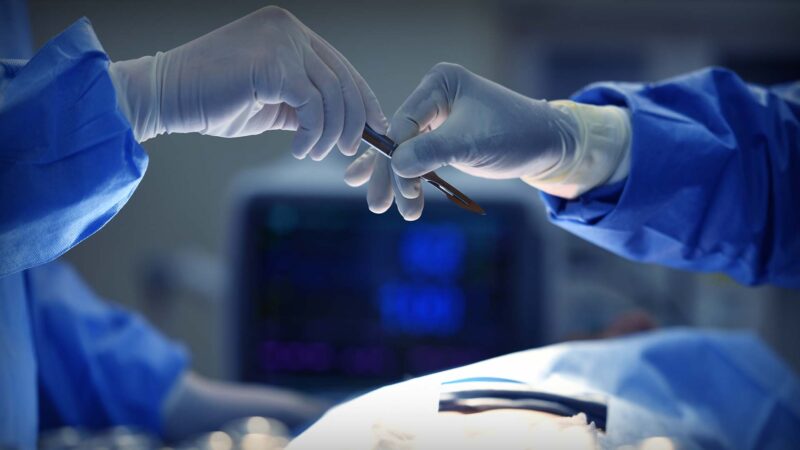Australian entrepreneur, Lauren Barber, turned her nursing background into the role of an inventor and launched a medical device into the Australian healthcare industry.
Lauren began her career as a nurse at the Sydney Adventist Hospital and later moved into cosmetic dermatology, leading her to start her own company. Her journey as an entrepreneur has been challenging, but she has learned skills in resilience and crisis management. She still works as a nurse for 1-2 days a week to maintain her clinical skills. Her inspiration for this career path stems from a personal experience with a needle stick injury that led her to explore the relationship between needle-phobia and a person’s health.
NeedleCalm has now launched a new, world-leading medical device in Australia to improve vaccination rates and calm the nerves of the approximately six million Australians who fear injections. The Class 1 medical device, which recently received approval from the TGA, works by using a technique referred to as “closing the gate” between the needle injection site and pain receptors in the brain.
“Our technology is a game-changer and can be used in an estimated 76 million needle procedures in Australia each year. It’s easy to dismiss needle phobias, but they affect approximately 25% of Australians, while a local study found one in five patients with a fear of needles reported avoiding healthcare.”, says Lauren.
And today in Adelaide at the Australian College of Nursing’s National Nursing Forum, Lauren Barber was awarded the winner of the Health Minister’s Award for Nursing Trailblazers. The award acknowledges nurse-led innovations and models of care which significantly improve health outcomes for the Australian community through evidence-based processes.
With the support of her family and over 10 mentors who specialise in various areas, Lauren has overcome struggles in finance and fundraising. She has learned from her mistakes and now seeks advice from multiple sources before making a decision. In this reflection segment with Australian Health Journal, Lauren talks about the challenges of bringing a medical device to market, not just in company formation, regulatory approvals but also in selling to the health care procurement departments in hospitals.
No journey is linear for an entrepreneur, but Lauren has travelled considerable distance from a nursing student to a successful entrepreneur illustration her determination and passion to help those with needle phobias. Lauren’s work with NeedleCalm is making a positive impact in the healthcare industry and improving the experiences of patients and clinicians alike.
Adapted from Charles Sturt article “Lauren launches world-leading medical device to improve healthcare access”
You Might also like
-
Surgeon receives global award for kidney transplant science
Commencing a new series called Pioneers in Health Care, is an interview with Professor Jeremy Chapman AC who for over 40 years, has been involved in nephrectomy, or kidney transplantation.
Honoured “for eminent service to medicine, particularly in the areas of clinical and biomedical research, to the development of ethical policy and practices for organ donation, acquisition and transplantation, and to renal medicine organisations and publications, Jeremy Chapman AC has played significant roles in development of kidney, pancreas and unrelated Bone Marrow Transplantation in Australia. -
Rural allied health mentorship program creates opportunities for students and practice
Melanie Roll, a director and physiotherapist at Gen Health Hamilton, is dedicated to nurturing the next generation of allied health professionals. Gen Health’s support begins with a work experience program for local secondary school students, where they can observe a variety of health services and participate in an annual careers night to explore allied health career pathways.
Upon moving to tertiary education, students are offered placements through a five-week program designed to transition them from observation to supervised practice and ultimately to seeing their own patients. In their final study year, they can apply for the mentorship program, which aids the transition into private practice.
-
Targeted National Lung Cancer Screening Program commences in 2025
In February 2025, Australian Health Journal spoke with Mark Brooke, Chief Executive Officer of Lung Foundation Australia, at the 10th Australian Lung Cancer Conference in Adelaide, on the upcoming commencement of the National Lung Cancer Screening Program (NLCSP)



